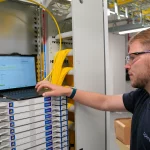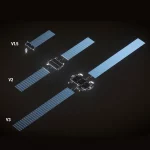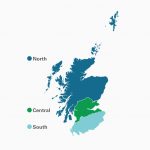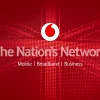BT BET Technology Brings 2Mbps Broadband to Glen Tanar in Scotland
Broadband Enabling Technology (BET), which can deliver fixed line broadband ISP speeds of 2Mbps (Megabits per second) to UK rural premises that reside up to 10-12km away from their telephone exchange, has been used to help connect the digitally isolated highlands community of Glen Tanar in the Scottish Highlands.
The BET solution has been around for awhile and is a cousin of the more familiar SDSL service for businesses, albeit combining elements from ADSL to work using frequencies that are not as prone to deterioration over distance.
Advertisement
It’s a method that was once widely touted by BT as a solution for helping the most remote areas gain access to broadband speeds of 2Mbps, although it’s a costly option (often costing well over £1,000 +vat to install) and as a result the majority of ISPs have shown no interest. It also requires 2 pair copper cables to deliver the full 2Mbps service, which adds to the cost.
In any case a grant of £10,336 from the Cairngorms EU Leader Project has allowed BET to be installed at 11 locations across Glen Tanar, most of which are remote homes and businesses that would have previously struggled to receive a reliable broadband connection (real world speeds of just 512Kbps or less are common here).
Michael Bruce, Owner of the Glen Tanar Estate, said (Donsidepiper):
“Prior to this new technology being installed the broadband service to Glen Tanar was slower and broke down more frequently. We now have a service which allows the community to stay better connected with family, friends, customers and suppliers. Having a more reliable and faster service has been of huge benefit.”
It’s understood that locals also contributed some money towards the service installation. Meanwhile the neighbouring Ballogie Estate has used the same method to connect 8 premises.
The service might be a benefit to locals but it’s sadly also a technological dead-end. Speeds of 2Mbps are already well below the national average, which Ofcom recently estimated to be a little over 9Mbps, and yet Europe expects 100% to have access to speeds of 30Mbps+ by 2020.
Advertisement
Mark is a professional technology writer, IT consultant and computer engineer from Dorset (England), he also founded ISPreview in 1999 and enjoys analysing the latest telecoms and broadband developments. Find me on X (Twitter), Mastodon, Facebook, BlueSky, Threads.net and Linkedin.
« BPI Calls on The Pirate Party UK to Close its Pirate Bay Internet Proxy

















































Comments are closed